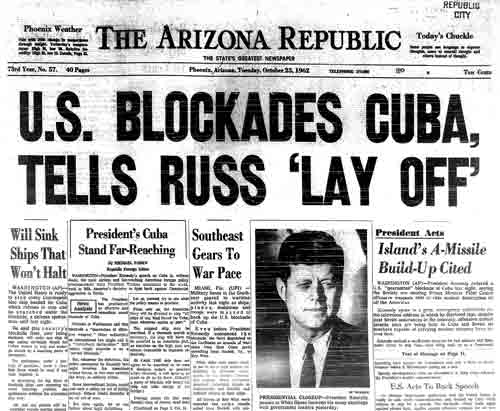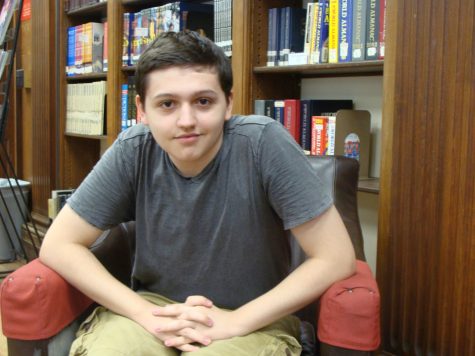This Day In History: October 28th
October 28, 2016
On March 12th, 1947, the Truman Doctrine was issued. This was a document drafted by President Harry S. Truman, declaring that it is the duty of America to stop the spread of Communism at all costs. This is widely regarded as the start of the Cold War, a conflict between the United States and the Soviet Union to keep the other country’s ideals from spreading. Tensions were high, as everyone thought the Russians would nuke them at any moment. False accusations of people being Russian spies were made to everyone. No one knew who anyone else really was. Could your neighbor have been a Communist?
October 28, 1962 marks the day in which the Cuban Missile Crisis ended. This was a conflict in which Russians were spotted placing nuclear missiles in Cuba, a Communist country extremely close to America. Citizens of America would only have five minutes to know when they would be burnt by the intense flames of the missiles. President Kennedy worked with his cabinet for a crucial thirteen days to make decisions on an extremely sensitive case.
Many of the military leaders in his cabinet pressured Kennedy to perform surgical attacks. These attacks would simply bomb the areas in which the missiles were being stored, and this was thought to be safe since the missiles were thought to not be active when they were in Cuba. However, the Soviet leader at the time, Secretary Khrushchev, released a memoir years afterwards stating that the missiles were always active and that he had full intent to bomb America.
The way that America succeeded in this event was thanks to the wit of the Kennedys, both Robert and John. Along with a close friend of the president, they decided a blockade of Russian cargo ships to Cuba would deescalate the situation. There was a period of time during the blockade in which one of the Russian ships did not turn around and continued moving towards the blockade. While many pressured the president to shoot non-nuclear missiles at the cargo ship, Kennedy once again stuck to his guns and waited, assuming that the cargo ship did not receive the message of the blockade. In this game of chicken, the Russians blinked.
The cargo ship soon turned around and was not able to deliver its contents to Cuba. Back on US soil, Robert Kennedy, John’s little brother and Attorney General, went to the Russian embassy in D.C., where he found that there were smokestacks coming out of the building’s chimney. The Russians were burning their documents, a sign that war would be coming soon. The unsung hero of this story negotiated with the Soviet ambassador, stating that if the Russians removed all of their missiles in Cuba, in six months time, the Americans would remove their missiles in Turkey. This time gap was to make sure the media did not catch on that the Kennedys negotiated with the Russians. If they had known that America negotiated with Russia, Russia could continue to use that tactic until they lost all of their ground as we had. In this sense, we would be seen as weak.
We all owe it to the Kennedys for saving America in an extremely sensitive time period. While many doubted them for their youth, it should not be forgotten that some of his more experienced cabinet members called for surgical attacks on the missiles, or even a full on invasion.


